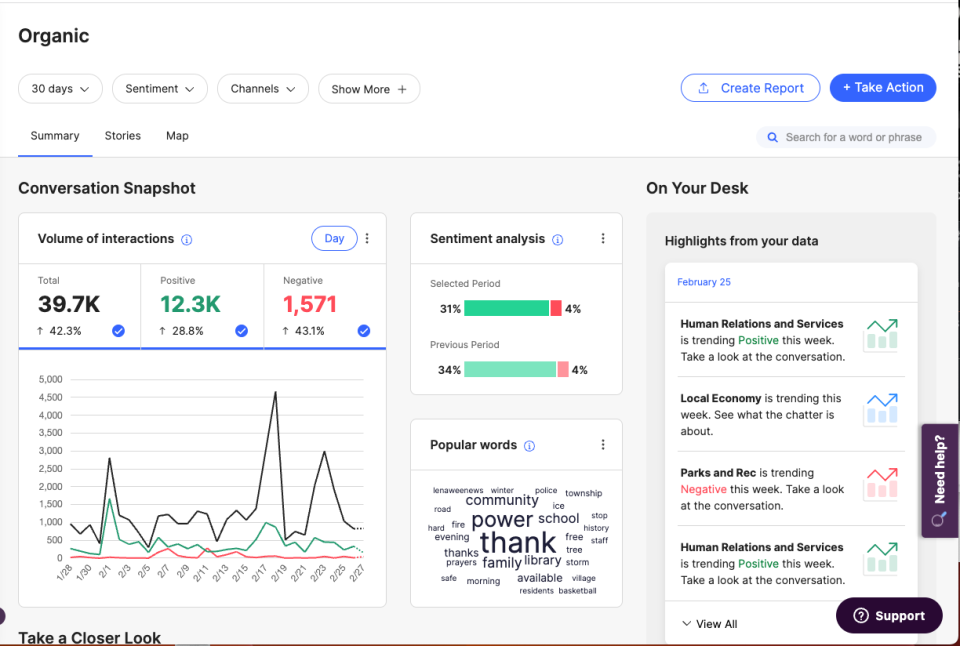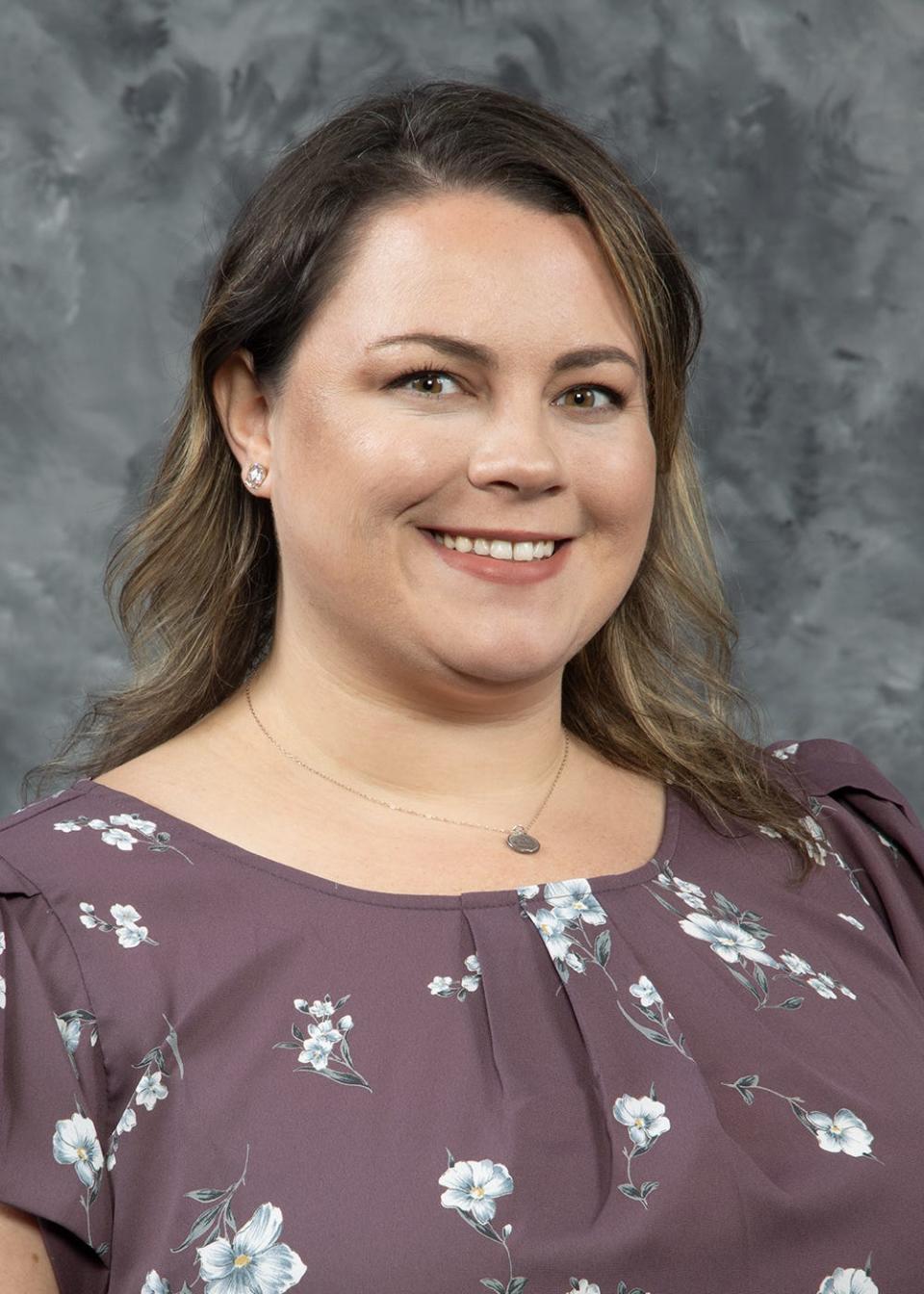Is your local government reading what you post on social media? It's possible
Local politics are especially charged in 2023, given two years of pandemic-fueled infighting and changes in the way candidates run for office. Social media posts from frustrated residents abound. But what if those posts were targeted by data-mining software and analyzed to feed information about public opinion to your representatives?
In some parts of Michigan, that's exactly what's happening. Many of Michigan’s 1,856 local governments don't have a social media presence — and those that do typically use Facebook to communicate with residents. But some municipalities have gone a step further, using social media to their advantage in ways their counterparts couldn't have imagined 20 years ago.
In Lenawee County, specifically, a partnership with data-miner Zencity has sparked controversy, and it's not the only municipality that uses the company's services.
Founded in 2016, Zencity has dual headquarters in New York City and Tel Aviv. The company provides several social media tools to local governments — its most popular is Zencity Organic, which summarizes data posted on the internet and accessible to the general public, like posts on Twitter and public Facebook pages.
The software automatically sifts through hundreds of thousands of posts and comments per year, targeting comments related to local government responsibilities, categorizing by topic and sentiment, and enabling local governments to manage their own social accounts in one place.
The dashboard municipalities can access shows the volume of interactions, the percentage of positive and negative sentiments, popular words, top stories and more.

Lenawee County began using the software during the COVID-19 pandemic to track discourse and promote more effective communication with residents, according to Deputy County Administrator Shannon Elliott.
Zencity has eight customers in Michigan, six of them counties: Calhoun, Kalamazoo, Kent, Midland, Lenawee and Ottawa. The Michigan Department of Health and Human Services is also a customer.
What's to dislike? For some county commissioners in Lenawee, the monitoring of online interactions feels like an invasion of privacy.
“(It's) a way to ‘listen in’ on what residents are talking about on social media sites," wrote Commissioner Nancy Jenkins-Arno in an email. "While it’s true that people are speaking in a public forum, they are not informed that their conversations are being monitored by Zencity, and what is said is being turned over to county government."
The board narrowly defeated a motion to end the county’s $48,000 contract with the software provider in March.
Ottawa County first partnered with Zencity in the spring of 2020. The county used the software to gather “resident-generated data points." More recently, Ottawa County contracted with Zencity in March 2022 for a one-year use of Zencity Core. The contract called for community surveys on housing and ARPA funds and four COVID-19 benchmark reports.
At the time of that approval, then-Ottawa County Administrator John Shay said the county would reevaluate the need for Zencity in 2023 and whether there were any “hot button issues” that needed to be monitored.
That contract expired March 19. There were no discussions by the current county board, consisting of mostly new members, about extending or renewing the contract.
Midland County Administrator Bridgette Gransden said Midland County also started using Zencity’s services in 2020.
“We started with the tool that searches for and analyzes organic public sentiment from both formal and informal media channels. The insight we receive from this information gives us some sense of where the public conversations are trending on various topics of interest,” Gransden wrote in an email.
Gransden said Midland County hasn't come up against controversy.
“Zencity is not accessing data that is not available to others on social media. If you post info on social media and your account is not private, then it is essentially open for others to access,” Gransden said. “I would say I agree that talking to people face-to-face is a splendid way to communicate and that the more options for communication with our local governments the better."
MDHHS has partnered with Zencity since April 2021, using Core Saas and Insight Reports. The department has received eight surveys including full analytics and reporting since April 2022. The cost for the past year was $280,000, paid for with COVID-19 relief funding.
“Zencity provided a tool during the pandemic to help us understand sentiment regarding the COVID-19 vaccine and helped us determine relevant messaging and timing as we encouraged vaccination,” MDHHS Associate Public Information Officer Chelsea Wuth wrote in an email.
“The Zencity core product provides an easy dashboard to look at discussions on social media across a range of topics. It’s used as a tool to help understand sentiment. ... The surveys provide insights on how people are feeling about the COVID vaccine, why or why not they are vaccinated and insight into what messages would help move them towards vaccination.”

Social media use, according to data from the University of Michigan’s Center for Local, State, and Urban Policy, has certainly increased over the past decade for local governments.
“Back in 2012, only about 18 percent of local officials told us their governments used social media (including 48 percent of jurisdictions with more than 30,000 residents)," Debra Horner, senior program manager for CLOSUP, wrote in an email. "In 2021, that was up to 29 percent (including 57 percent of those with over 30,000 residents and 61 percent of cities statewide). So, although it has increased, it’s not as if all or even most of our 1,856 local governments statewide have their own social media presence."
Matt Bach, assistant director of strategic communications for the Michigan Municipal League, said municipalities use social media in all sorts of ways.
“We have communities that primarily rely on traditional social media outlets, such as Facebook and Twitter, to communicate with the public, but we also know of communities that use multiple social media platforms," he wrote in an email. "The most common platform continues to be Facebook, but communities continually look at ways to improve and expand their social media reach."
The Michigan Townships Association anecdotally sees townships using social media more and more often as a means of communicating and sharing accurate, timely information with residents and the greater community. Facebook seems to be the most popular platform for official township accounts, according to Jenn Fiedler, communications director for the MTA.
“Social media allows townships to meet people where they are and where they get their news and information — online — and bring the township message to them," she wrote in an email. "Of course, in today’s world, many, many things online are contentious or spark controversy. But, to me, I see townships’ use of social media as being an avenue to inform and assist and help foster greater local engagement and allow their residents (to) feel more connected to the community in which they live."
Jessica VanderKolk, communications manager for the city of Battle Creek, said social media is a major part of Battle Creek’s communications strategy. The city uses Facebook, Twitter, Instagram, YouTube, LinkedIn and Nextdoor.
“Like all of our community engagement, social media is one piece of the input we seek that goes into policy and decision making. Most often, we use social media to promote more official forms of engagement for that purpose, like surveys created on other platforms, community conversations, or public comment required to a particular email, phone number, or public meeting/open house,” VanderKolk wrote in an email.
“Social media can be a great part of a balanced communications strategy for a local government organization. How it fits into the strategy depends on the community; knowing one's audience is important to successful social media engagement, and successful communication overall. As communicators, we want to do our best to reach as much of our communities as possible, reaching people where they are, and with methods they are comfortable using.”
Kara Sokol, director of communications for the city of Ferndale, said the city uses social media both traditionally and proactively.
“We're unique in the fact that we also use it proactively, namely by staffing and monitoring community Facebook groups," Sokol wrote in an email. "I fought this at first; my ideal situation was for staff and elected officials to stay out of groups we can't or don't control — to avoid gossip, negativity and rumors. However, I soon realized how much we were missing: residents' real opinions, fears and concerns, customer service experiences and questions.”
Sokol drafted a social media policy that called for these groups to be staffed and engaged by members of Ferndale’s communications department only; other staff and elected officials are asked to refrain from responding to tags and posts.
“This is the plan we've followed for seven years and we have always found it to be productive. When we receive complaints about a project — a proposed development, for example — staff will ask me to take the temperature on social media: is it a small number of highly opinionated people or are many people engaged?
"Do these people have any commonalities? ... The information helps us determine the size, tone, and specifics of our response."
— Cassandra Lybrink and Mitchell Boatman of The Holland Sentinel contributed to this report. Contact reporter Mary Lowe at mlowe@gannett.com.
This article originally appeared on The Daily Telegram: Is your local government reading what you post on social media? It's possible

